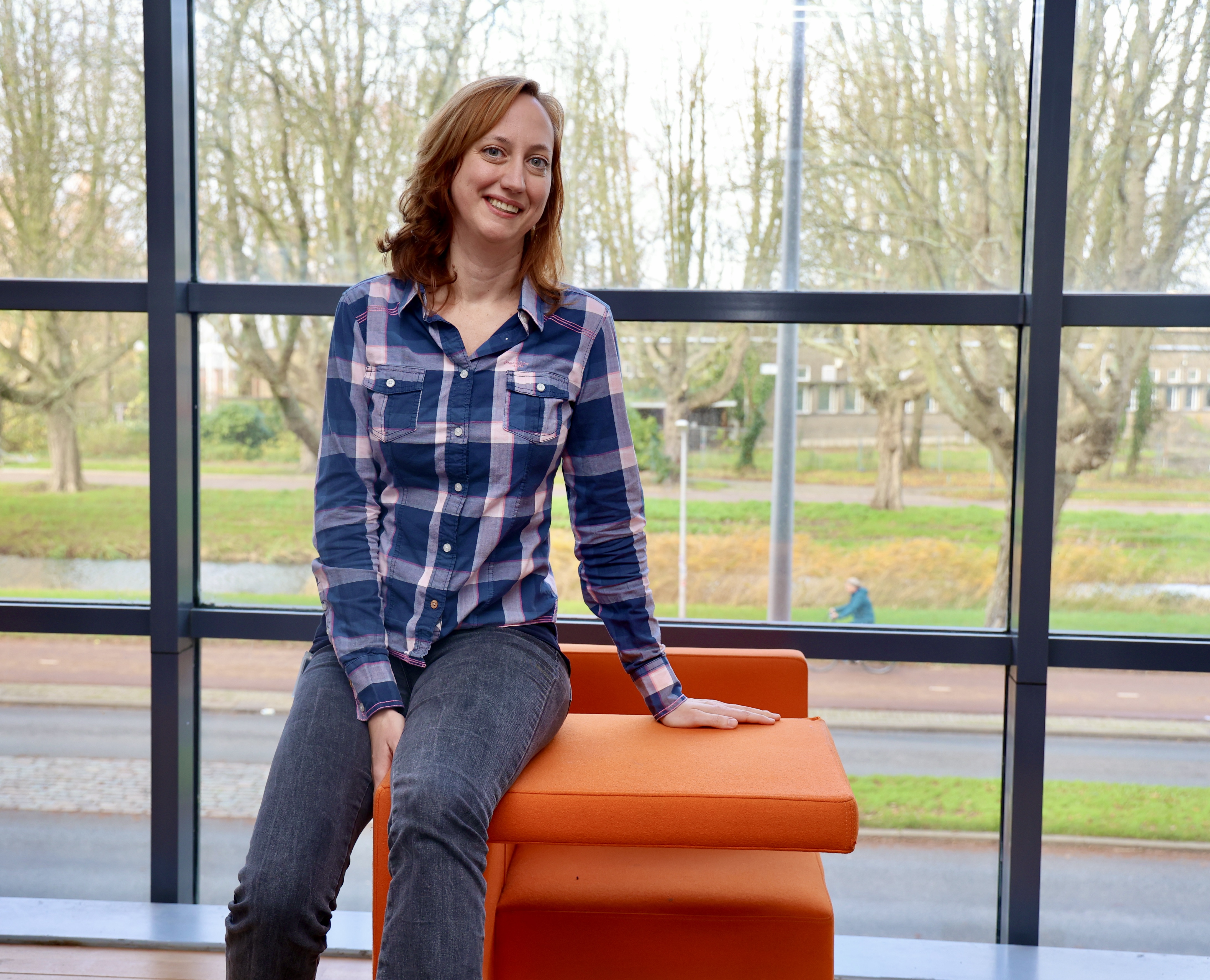Naomi van der Linden
What exactly do you do at the cutting edge of technology and healthcare?
Healthcare has been a common thread in my academic career - from my graduation thesis in anthropology to my PhD in health economics and beyond. Here in Delft I look at the healthcare system as a whole, and how to make it sustainable into the future. With all its actors and forces, it is incredibly complex. I hope to further develop health economics-based methods that will help us contain that complexity more effectively. Fortunately, we are not afraid of complex questions here at TU Delft.
Sustainable med tech innovations play an important role in a future-proof healthcare system, because to address the core challenges of healthcare, we need to do things more smartly. I use my research to assess how technology can generate value in the medical world, and quantify that value for decision-makers. Ultimately, this will allow us to prioritise interventions that generate maximum benefits for patients and the healthcare system as a whole.
An important aspect here is to assess technology and policy not only on healthcare outcomes and costs, but also on the basis of their environmental impact, for example. And above all, I want to look at how innovations are affecting our demand for human resources, including nurses. There is currently a huge shortage of personnel, and they did not enter the healthcare sector just to push buttons.
Like me, my health ambassador Irene Grossman is very interested in the acute healthcare system. That system is undergoing many changes, including the aim to concentrate high-complex care in a limited number of locations, while organising low-complex care to be based closer to patients' homes. At the same time, the ageing population is having a major impact, with more patients with more complex problems being admitted to emergency departments. How do you make sure all these people get to the most appropriate place, which is by no means always the hospital? We are exploring various issues in this area with students.
What is your impression of the world of technology?
Doctors are very much in the day-to-day patient care business and therefore have little opportunity to exercise the luxury of stepping back to appreciate the bigger picture. Technologists are particularly creative and innovative, possessing a strong urge to make a real difference, but they often lack knowledge of the medical world. And that’s where my bridging role comes in.
I especially enjoy working with startups or innovations that are still in their infancy. As a health economist, I am well versed in scenario thinking: calculating for which patients or what healthcare demands the potential of an innovation is likely to be greatest. This means I can help them make the right design choices at an early stage in order to maximise the impact of their technology and to demonstrate the value it will bring.
Do you have a top tip for engineers who work in the medical field, or who would like to do so?
I often feel as though I’m an afterthought. Typically, people start considering the economics of healthcare technology only when all the design choices have already been made. If engineers were to involve me three years earlier, then I would be in a position to help them line up their ducks and therefore really make a difference.
